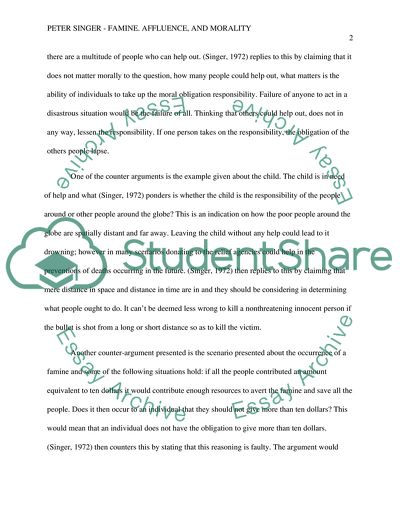Cite this document
(“Peter Singer - Famine Affluence, And Morality Assignment”, n.d.)
Peter Singer - Famine Affluence, And Morality Assignment. Retrieved from https://studentshare.org/english/1608807-peter-singer-famine-affluence-and-morality
Peter Singer - Famine Affluence, And Morality Assignment. Retrieved from https://studentshare.org/english/1608807-peter-singer-famine-affluence-and-morality
(Peter Singer - Famine Affluence, And Morality Assignment)
Peter Singer - Famine Affluence, And Morality Assignment. https://studentshare.org/english/1608807-peter-singer-famine-affluence-and-morality.
Peter Singer - Famine Affluence, And Morality Assignment. https://studentshare.org/english/1608807-peter-singer-famine-affluence-and-morality.
“Peter Singer - Famine Affluence, And Morality Assignment”, n.d. https://studentshare.org/english/1608807-peter-singer-famine-affluence-and-morality.


